Mediterranean migrants crisis: Europe 'must do more'
- Published
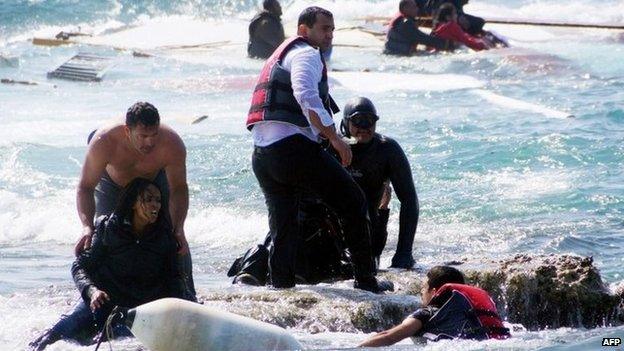
On Monday a boat ran aground off the Greek island of Rhodes
A Greek minister has said the "great powers" of Europe need to take more responsibility for the unfolding crisis in the Mediterranean Sea.
Deputy Defence Minister Kostas Isichos told the BBC northern Europe must do more to rescue and shelter migrants.
He said that Greece, Italy and Spain were working on a common position ahead of an emergency EU summit on Thursday.
Meanwhile, more than 500 rescued people were brought ashore by Italian coastguards on Wednesday morning.
The number of people attempting to flee war and poverty in the Middle East and Africa, particularly Eritreans and Syrians, has spiked in recent months, leading to huge numbers of people drowning in unseaworthy vessels.
The International Organisation for Migration (IOM) says there have been 30 times as many deaths so far in 2015 as in the same period last year and the figure could rise to 30,000.
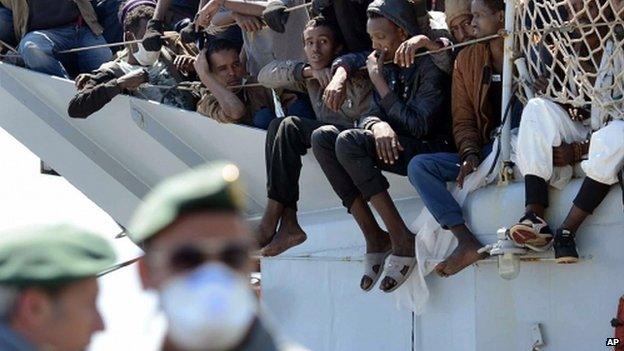
More than 500 rescued people were brought ashore to Italy on Wednesday
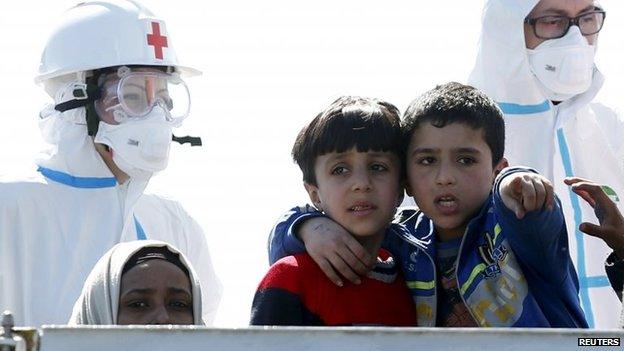
Medics have been checking how many migrants - particularly young children - required immediate treatment
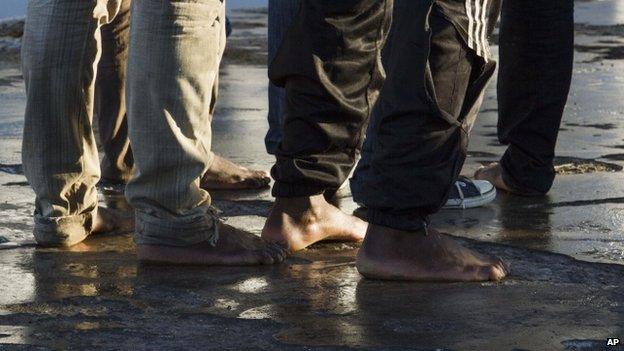
A number of those rescued were barefooted and looked exhausted
Also on Wednesday, Italy's parliament held a minute's silence for Sunday's disaster, in which more than 800 people died.
Prime Minister Matteo Renzi then addressed MPs, saying he wanted asylum applications in Italy to start being processed by a "European team" and that more action was needed in countries where migrants originate in sub-Saharan Africa.
Matteo Renzi: "In the face of human trafficking it's not a question of security or anti-terrorism"
However, the UN's special rapporteur on the human rights of migrants has said wealthy countries should agree to accept one million Syrian refugees over the next five years to help end the series of boat disasters.
"If we don't provide any official mechanism for... [migrants], they will resort to smugglers. The inaction of Europe is actually what creates the market for smugglers," Francois Crepeau told the Guardian newspaper, external.
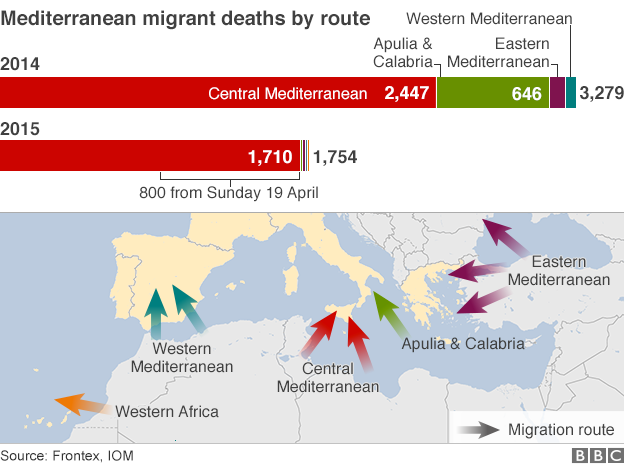
Special report: Europe's migrant crisis
More on the Mediterranean's deadly migrant routes, external
On Monday, the EU set out a package of measures to try to ease the migrant crisis in the Mediterranean.
They include an increase in the financial resources of Frontex, the border agency which runs the EU's Mediterranean rescue service Triton, and an extension of Triton's operational area.
The EU had been criticised over the scope of Triton, which replaced the larger Italian operation Mare Nostrum at the end of last year.
There will also be a new campaign to destroy traffickers' boats.
Human rights group Amnesty International said, external that the decision to end Mare Nostrum had "contributed to a dramatic increase in migrant and refugee deaths" and called for "the immediate launch of a humanitarian operation to save lives at sea".
The UN refugee agency (UNHCR) welcomed the EU's proposals, but stressed that "much more was needed", external to tackle the issue.